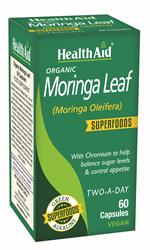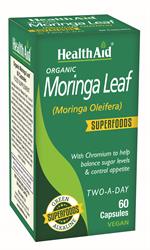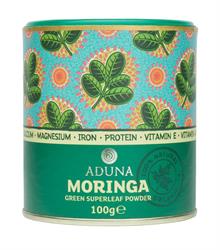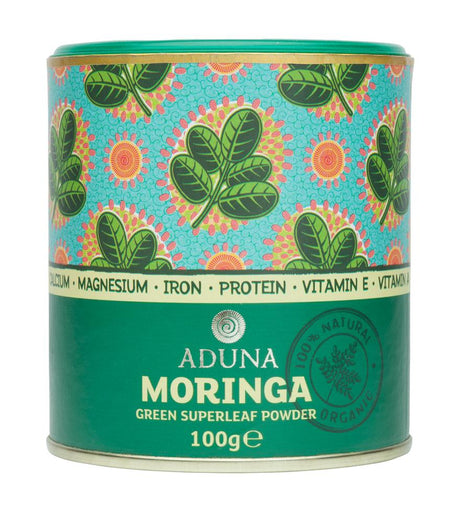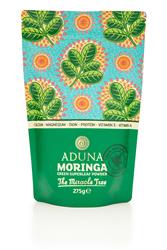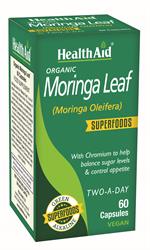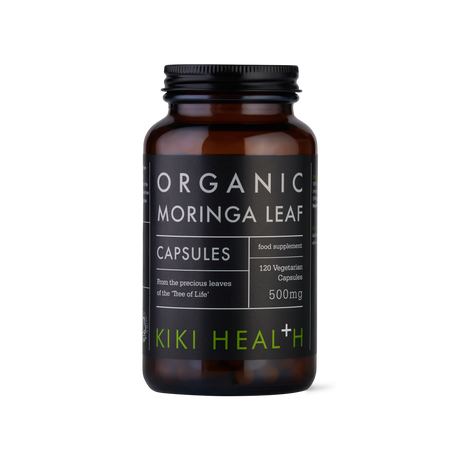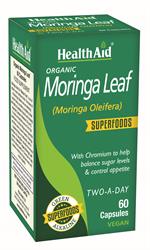HealthAid Organic Moringa Leaf Capsules
Moringa leaves are rich in antioxidants including vitamin C, beta-carotene, quercetin, and chlorogenic acid. The latter, chlorogenic acid, has been shown to slow cells' absorption of sugar and animal studies have found it to lower blood sugar levels. It is also an important source of Iron that contributes to reducing fatigue and regenerating red blood cells to prevent anemia. Moringa supplementation is traditionally used to energize and strengthen naturally the immune system. Moringa oleifera leaves, seeds, bark, roots, sap, and flowers have been widely used in traditional medicine, and the leaves and immature seed pods are currently used as food products in human nutrition. The leaves are known to have the highest antioxidant potential of all plant parts, with leaf extracts exhibiting the greatest antioxidant activity and various safety studies in animals indicating a high degree of safety. Most traditional medicinal usage of this plant is related to its anti-inflammatory properties, focusing on leaf extracts. No adverse effects have been reported in human studies, which have demonstrated anti-hyperglycemic and anti-dyslipidemic activities.
- We offer Free UK Delivery to all UK addresses (except Jersey) for orders placed over £35.
- All the orders will be delivered in 3-5 Working Days from the date of order.
- Free UK Delivery is available for orders with a total order value of £35 or more (excluding any taxes or additional fees)
- Orders will be delivered using Royal Mail Shipping, fulfilled by Natural Health Options.
- For UK orders under £35, delivery is charged at a flat rate of £3.50.
- Free UK delivery is not applicable to orders being shipped to Jersey. Separate shipping charges will apply for orders delivered to Jersey.
* Please note on very rare occasions where orders weigh above 20kg, there may be a delivery surcharge applied at checkout and prices shown are for online orders only.
Moringa from Other Brands
Join The Natural Health Club & Avail Exclusive Benefits!

